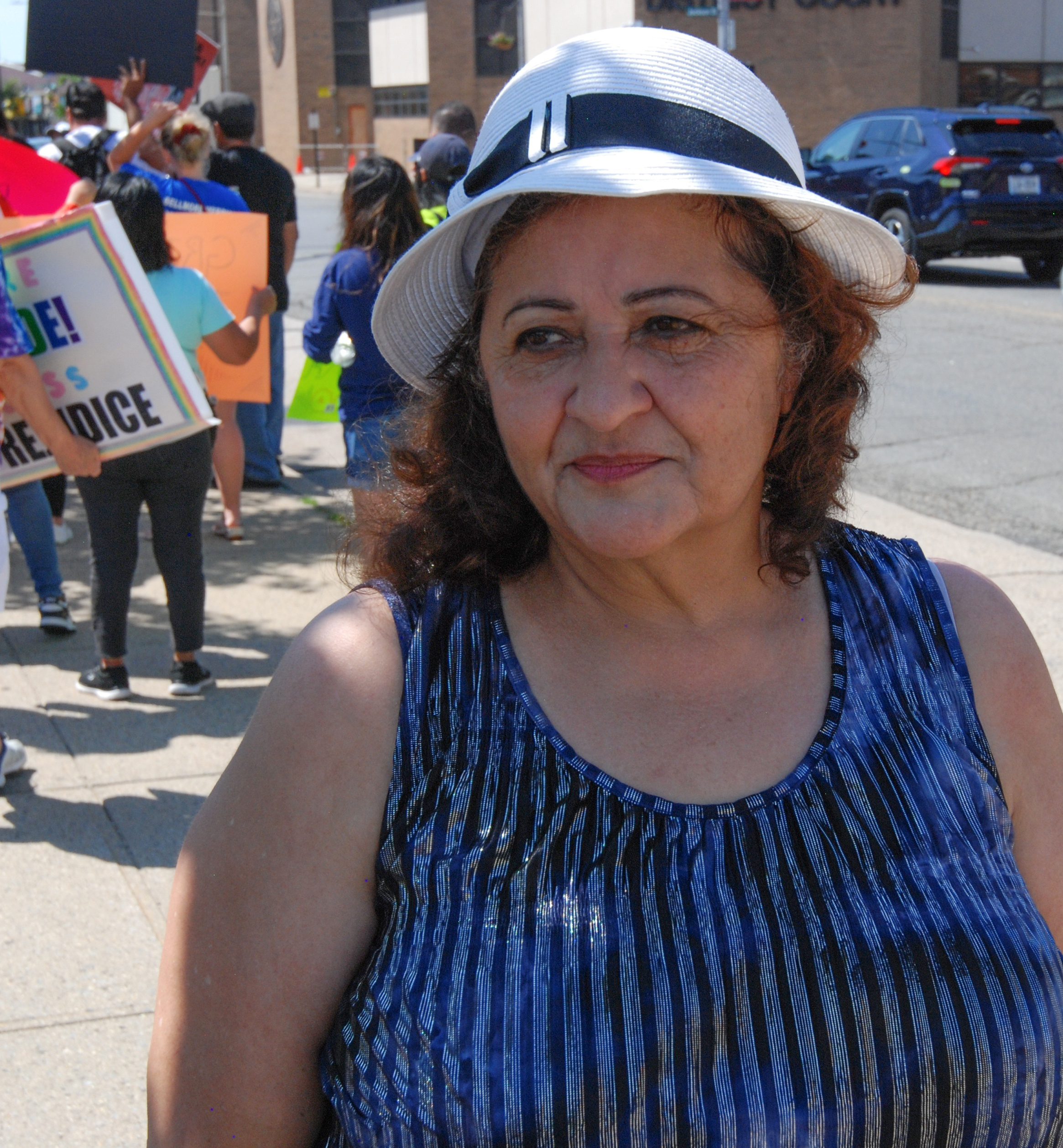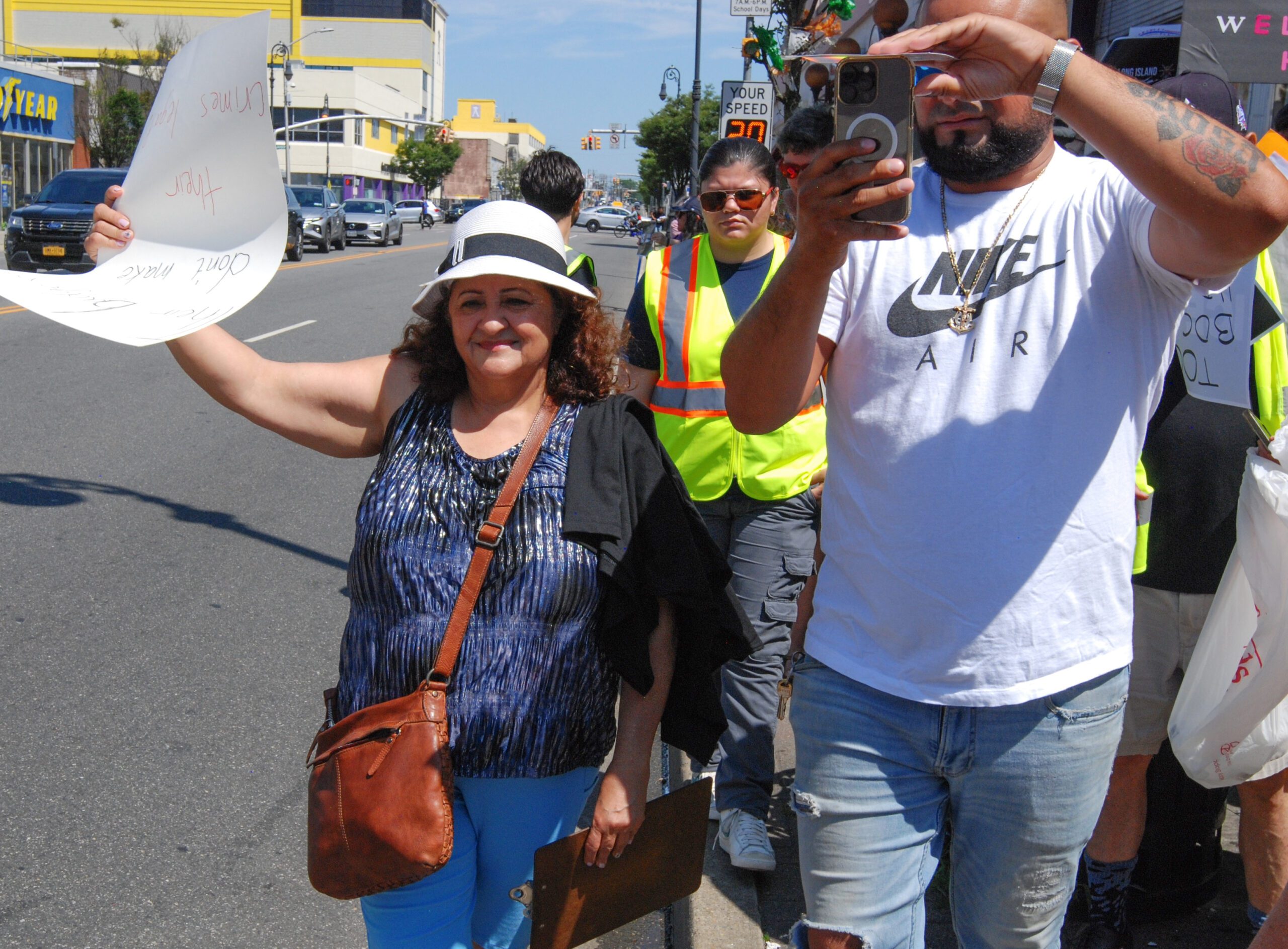By Ava Dela Pena
After Deyanira Barrow fled Nicaragua in 1979 to escape the civil war there, she underwent an arduous journey and workplace abuse. Now living on Long Island, the 61-year-old Barrow has her citizenship and is a long-time volunteer immigration activist for the Hempstead-based Workplace Project, helping migrant laborers understand their rights under the law and protesting on their behalf.
According to nonprofit organization’s executive director, Lilliam Juarez, the Workplace Project supports “Latino immigrants on Long Island with education on labor and civil rights, occupational health and safety training, wage recovery and training.”
Barrow’s passion for justice began when she experienced the brutality and oppression of war. Barrow described the precarious conditions that she faced in Nicaragua living off sparse rations, including sharing a pound of sugar and a single detergent bar in her large household. Fear permeated her neighborhood.
“I was afraid of living in my country and seeing it become like Cuba,” she said. “We knew what happened in Cuba. We knew that the food was controlled, that there were censors.”
She was referring to the Quinquenio Gris (the Gray Years) in Cuba, a period in the late 1960s through the mid-1970s when the government targeted artists and journalists for censorship, suppressing cultural and political criticism.
“We thought it was difficult at the time,” she said. “But compared to what’s going on right now, it’s nothing. Now, it’s very dangerous. It’s amazing how the people continue to cross the border.”
Barrow was referring not only to the current crackdown on immigration by the Trump administration, but also the ongoing human rights crisis and protests in Nicaragua since 2018. A 2024 United Nations report detailing human rights violations in Nicaragua highlighted a 142% increase in arbitrary detentions, as well as 12 instances of torture while in detainment. Protests against these violations have proven fatal. A report by the Inter-American Commission on Human Rights estimated that at least 355 people died during government efforts to repress protests in 2018 and 2019.

After leaving Nicaragua, Barrow first immigrated to Mexico, where she lived in the state of Sinaloa in the western part of the country, until 1986. From there, she headed to California, where first experienced workplace abuse in 1990.
There, Barrow had worked as a babysitter through an agency and was a victim of wage theft by one of her clients. “The first month, the lady paid me. The second month, she didn’t pay me,” she said. “She didn’t even give me money for the bus.” The agency recommended she seek compensation through the State of California. Then, her client declared bankruptcy, and Barrow lost a month’s wages.
“I was sick,” she said. “December was coming at that time, and I promised my son I would buy him a bicycle for Christmas, but I couldn’t give it to him. It was a horrible Christmas. I had no job, no money.”
She was not yet a documented resident during this time, a major obstacle for her in seeking justice. Barrow later received documentation in 2000 under the Nicaraguan Adjustment and Central American Relief Act (NACARA), which offered a path to citizenship for eligible immigrants through a green card. NACARA granted relief to asylum seekers who had fled war-torn regions in Central America before 1990.
She moved to Franklin Square in 2003 to stay with her sister, and two years later to Hempstead, where she resides today. There, she immediately joined the Workplace Project.
She was taking English and computer classes at the Circulo de Hispanidad (the Hispanic Counseling Center) in Hempstead when she spotted a notice for a workers’ rights training, to be conducted by the Workplace Project in the same building.
At the time, she was not yet fluent in English and was struggling to find a room for rent that would accommodate her and her family. Barrow was interested in the Workplace Project owing to her history with workplace exploitation. Her first effort with the Workplace Project was a protest against wage theft.
Through the Workplace Project, Barrow met Juarez, who shared a similar history. Like Barrow, she fled her home country of El Salvador amid civil war. She arrived at the organization in 1993 to receive workers’ rights training after experiencing workplace abuse over five years.
“We believe that our community has been and continues to be a strong pillar of this country’s economy. Our community should be treated with dignity and respect,” Juarez said.
“I realized how important it is to be informed about one’s rights and about health and safety at work,” Juarez said. “I became a member of the center and volunteered to support domestic workers.”
In 2024, Barrow started her housekeeping business, Deyanira Cleans, making her own hours and choosing her clients. She remains active in the Workplace Project alongside Juarez.
“Every immigrant, they have their own story,” Barrow said. “Similar to mine, maybe, but different.”







